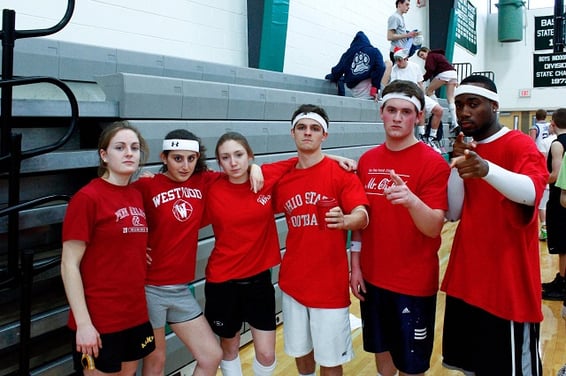How being white and privileged kept me out of the juvenile justice system
I’m new to a lot of things. Knitting, crossword puzzles, adult-ing, just to name a few. But most importantly, I’m new to my job at MST Services. Before working here, I could not have told you much about the juvenile-justice system. Now, by virtue of the research I now do, I can tell you a lot. Interestingly, not only have I learned a lot about the topic, I have learned a lot about myself.
This is not going to be me gushing about how my life has improved since coming to MST. (Even though it has). This is going to be me speaking about the harsh realizations and self-awareness I’ve come to have, most of which I think are equal parts pertinent and relevant to my peers, as well.
My friends and me, senior year of high school
I recently was fortunate enough to hear award-winning author Nell Bernstein, author of Burning Down the House speak. A statistic she shared stuck with me, though honestly, did not come as a surprise. In one study, adults were interviewed across the country about their adolescence. Roughly 90 percent acknowledged having done something in their teen years that was not only against the law, but was serious enough to have led to their incarceration.
Whoa. Ninety percent? Nine in 10 teens? Can that be true? At the risk of tarnishing my reputation, I will admit that I am without a doubt in that 90 percent. And truth be told, nearly every single one of my friends is too. These are kids who graduated from prestigious universities and colleges, including Ivies. Not your typical mental image of “juvenile delinquents,” are they?
Why weren’t we caught up in the juvenile justice system?
So, what gives?
Why were we not labeled as juvenile offenders? It’s a question I never had reason to think about before, but a question I think about often now. The answer is exceedingly simple, at best upsetting and at worst depressing. And likely, it will not surprise you much, either.
We’re middle class. We live in a mostly all-white community. And our misdeeds were dealt with by family and community before we ever had a brush with a uniformed officer or an “intervention.” Because in Westwood, Mass., police are neither patrolling our neighborhoods nor our school hallways. Bernstein said it better than I could: “Most kids commit crimes and in most cases, unless they are black or brown and poor, those are dealt with by family and community. And what happens in those cases? They grow up. They grow out of their impulsivity.”
I cannot emphasize that enough. Kids are kids. Kids do stupid, idiotic things, and then, in most cases, they grow out of it. And I know they do firsthand because the aforementioned friends are now graduating with 4.0s, working for Fortune 500 companies, attending elite law schools, receiving Fulbright scholarships and more. I’ll never forget what my high-school psychology teacher told me senior year. “If you ever do anything wrong, just tell your parents that you did it because your frontal lobe wasn’t fully developed yet.” If only all kids had the good fortune to be pardoned so fully.


